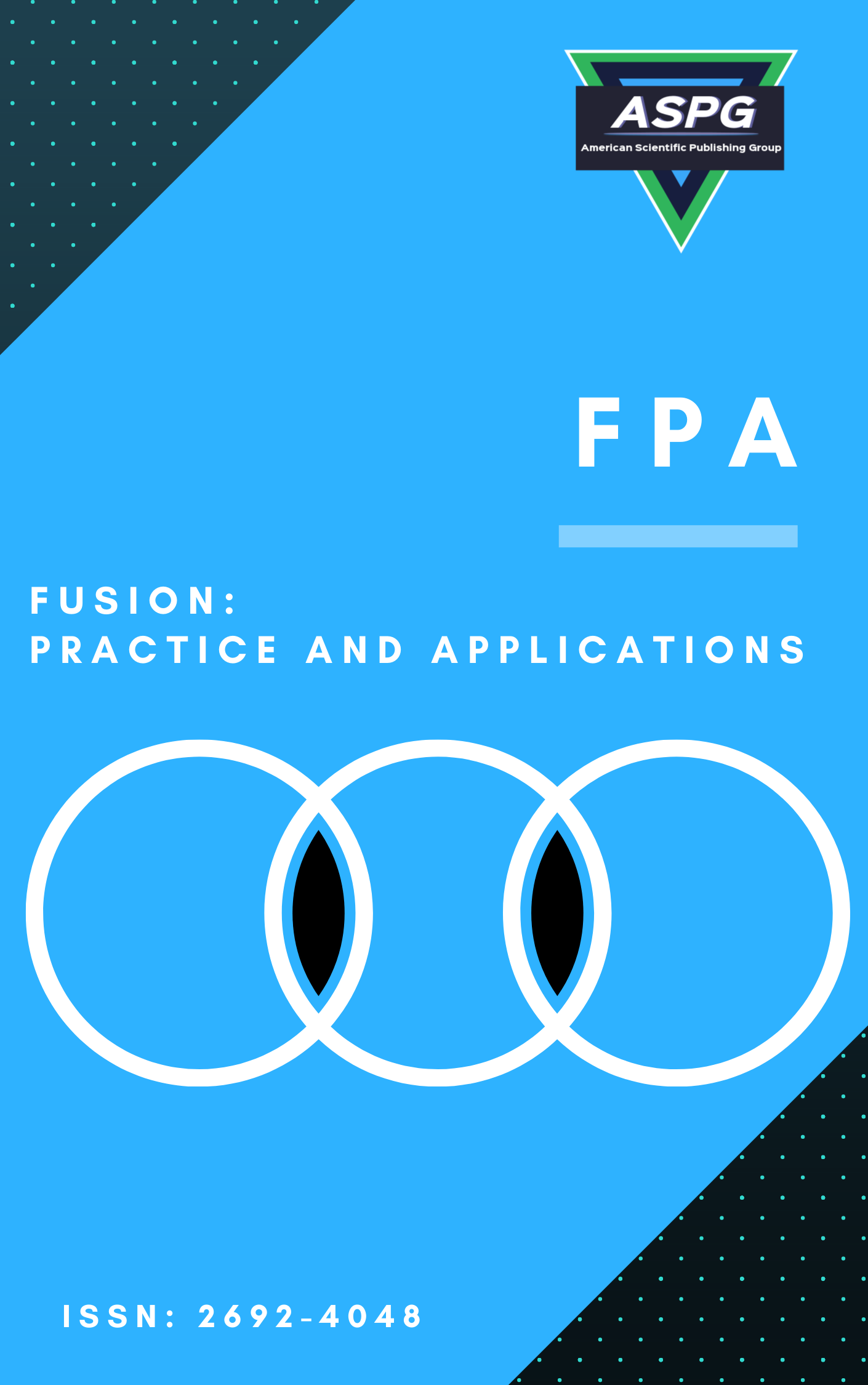

Volume 21 , Issue 1 , PP: 265-276, 2026 | Cite this article as | XML | Html | PDF | Full Length Article
Moosa Ahmed Hassan Bait Ali Sulaiman 1 * , Anita Venugopal 2
Doi: https://doi.org/10.54216/FPA.210119
The advancement of artificial intelligence (AI) in the field of education system has revolutionized traditional education paradigms. The ability of language models to process human language has revolutionized the field of artificial intelligence. The fusion of deep learning and cognitive science is getting attention in the academic system. The absence of structured policies and lack of AI fusion strategies in academics disrupt traditional teaching classrooms resulting in misuse and resistance in adoption of AI. This marks the importance of preparation of AI policies for effective implementation of AI tools in teaching and learning. This paper highlights the importance of framing the guidelines for organized and practical implementation of AI fusion in academics. This study bridges the gap by developing a standardized framework to transform normal classrooms into dynamic data driven platforms promoting professional development for teachers and empowering students with digital literacy and autonomous learning. The study examines predictive performance using deep learning strategies to extract key features of teaching, learning and cognitive and predicts the impact of AI in sustainable teaching. The highest importance scores range from 0.89 to 0.94, which indicates the importance of selected key features in models’ predictions. The highest mean score of 4.5 of the model establishes satisfaction of teachers and students with policy objectives. The results of the study indicate that integration of deep learning cognitive strategy along with clear policies framework help in achieving higher adoption and performances rates of AI in sustainable classrooms when compared with traditional teaching strategies with minimal AI-integration.
Artificial Intelligence , Sustainable Learning , Deep Learning , AI-Powered Education , Digital Learning
[1] R. S. Sajja, Y. Sermet, M. Cikmaz, D. Cwiertny, and I. Demir, “Artificial Intelligence-Enabled Intelligent Assistant for Personalized and Adaptive Learning in Higher Education,” arXiv, 2023.
[2] S. R. Jaladi, H. Doreswamy, and R. Uttam, “Integrating AI Tools in Academic Curriculum: A Study on the Effectiveness of AI Tools in Higher Education,” Emerald, 2024.
[3] Chang et al., “Artificial Intelligence Technologies for Teaching and Learning in Higher Education,” ResearchGate, 2022.
[4] T. Wang, D. Vargas-Díaz, C. Brown, and Y. Chen, “Exploring the Role of AI Assistants in Computer Science Education,” arXiv, 2023.
[5] A. A. Ateeq, M. Alaghbari, M. Alzoraiki, M. Milhem, and B. A. H. Beshr, “Empowering Academic Success: Integrating AI Tools in University Teaching,” ResearchGate, 2024.
[6] A. Matere, “Effectiveness of Artificial Intelligence Tools in Higher Education Institutions in Kenya,” ResearchGate, 2024.
[7] B. Ogunleye, K. I. Zakariyyah, O. Ajao, O. Olayinka, and H. Sharma, “A Systematic Review of Generative AI for Teaching and Learning Practice,” arXiv, 2024.
[8] N. Alqahtani and Z. Wafula, “Applications of Artificial Intelligence Tools in Higher Education,” ResearchGate, 2023.
[9] R. Luckin, W. Holmes, M. Griffiths, and L. B. Forcier, “Intelligence Unleashed: An Argument for AI in Education,” Springer, 2017.
[10] J. Yang and B. Zhang, “AI in Intelligent Tutoring Robots: A Systematic Review,” arXiv, 2020.
[11] “AI-Driven Education Can Help the Less Privileged,” The Australian, 2023.
[12] “Chatbots Might Disrupt Math and Computer Science Classes,” AP News, 2023.
[13] “Academics Express Confidence That They and AI Can Work Together,” Financial Times, 2024.
[14] “Colleges Embrace Chatbots,” Axios, 2024.
[15] “Claude Goes to College and Wants to Be Your Study Buddy,” TechRadar, 2024.
[16] Q. Zhou, H. Zhang, and F. Li, “The impact of online interactive teaching on university students' deep learning: the perspective of self-determination,” Education Sciences, vol. 14, no. 6, p. 664, 2024. doi:10.3390/educsci14060664.
[17] D. Aggarwal, “Green Education: A Sustainable Development Initiative with the Power of Artificial Intelligence (AI),” J. Image Process. Intell. Remote Sens., vol. 35, no. 39, pp. 2815-0953, 2023. doi:10.55529/jipirs.35.39.44.